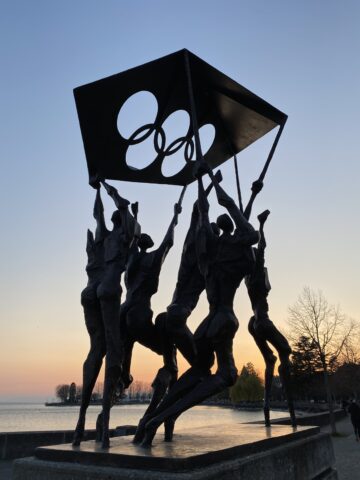Exclusive nature of a player’s agent contract / diregard of FIFA regulations not sufficient (as such) to establish violation of public policy
SFT 4A_668/2016 of 24 July 2017
The Issue
Before the CAS: Does anyone other than an exclusive representative have standing to enforce an agency contract under FIFA Rules and Swiss law? Exclusive nature of a player’s agent contract.
Before the SFT: Disregard of FIFA regulations not sufficient (as such) to establish violation of substantive public policy
The Facts
FIFA Player X wished to go on a loan to another team. His exclusive representative, B contacted the “Sub-Agent” Z who had links to various clubs, including Club C. All three (X, B, and Z) signed a contract in December 2014 (“the First Contract”), according to which B assigned Z as a “Sub-Agent” for a specific duration in order to negotiate the conditions for the loan of the player to the Club C. Both B and Z would jointly receive 10% of the total income of the player for the entire duration of the contract.
After B was paid for his services, Player X accepted to go on a loan to Club C. Shortly afterwards, Player X signed a second agreement with Z in 2015 (Agreement for payment of player’s agent commission, “the Second Contract”), whereby Player X committed to pay Z, a first payment of 37’500 euros (the first payment would be paid by the Club C on behalf of the Player) and a second payment of the same amount four months later, failing which a penalty clause was foreseen (10% of the unpaid fee). The Second Contract also included an arbitral clause in favour of the Court of Arbitration for Sport (CAS) in Lausanne.
The Court of Arbitration for Sport Proceedings
The second payment of 37’500 euros to Z remained unpaid and Z filed an appeal against the Player based on the Second Contract to the CAS. The Sole Arbitrator who was appointed in this case wished to hold a hearing but Player X objected to it for financial reasons. The CAS Secretariat confirmed the holding of a hearing and that Player X could attend via conference call.
In summary, the Arbitrator applied the 2008 FIFA Players’ Agents Regulations and Swiss law, subsidiarily, since the FIFA Regulations for Working with Intermediaries were not yet applicable (ratione temporis). The main question was the validity of the Second Contract and its compatibility with the First Contract between the Player, his exclusive representative B and the sub-agent Z. The Arbitrator applied Swiss law (principle of contractual freedom, Art. 19 CO). Accordingly, he found that the parties were free to negotiate the modalities of the calculation of the commission in a second contract and the Player was personally liable for the payment of the second part to the Sub-Agent Z.
As a consequence, the Sole Arbitrator upheld the claim and ordered X to pay 37’500 euros, in addition to the penalty of 3’750 euros and 5% interest.

The appeal to the Swiss Federal Tribunal
I. Violation of the parties’ right to be heard (Art. 190 para. 2 d PILA)
Player X subsequently filed a motion to set aside the CAS Award to the Swiss Federal Tribunal, in which he alleged a violation of the equality of the parties by the arbitrator: he claimed that his lawyer ceased his mandate just 2 days before the hearing and it was convened that his exclusive representative would assist the hearing. However, representative B had a personal interest in the outcome of this case, which opposed to the Player’s (B had an interest in Player X losing the case so that Player X would be solely liable for the payment to Z). The Swiss Federal Tribunal (SFT) found that the allegations made by Player X were neither supported by additional evidence nor were they consistent with the facts confirmed by the arbitrator in the arbitral award: these facts bind the SFT (at 3.2.2).
Nothing from the file could establish that the Panel did not respect the equality of the parties or that it deprived the Appellant of the possibility to express itself. Player X’s lawyer was still in charge of the case when he renounced his right to participate—even through a video conference—in the hearing or to ask for legal aid (see also SFT 4A_690/2016 of 9 February 2017; at 5.1). Moreover, Player X waited until the final award was rendered in order to attack the latter before the SFT invoking grounds of procedural fairness.
II. Violation of substantive public policy (Art. 190 para. 2 e PILA)
Player X also alleged a violation of substantive public policy, by not applying the FIFA Regulations for Working with Intermediaries and by ignoring the exclusive nature of the first contract between the parties (which, he alleged, would not allow the conclusion of the second parallel contract under Art. 20 Swiss Code of Obligations (CO). Here again, the SFT held that the simple fact of disregarding a provision of the FIFA Regulations does not qualify as a violation of substantive public policy.
More specifically, the SFT drew an analogy to a violation of Article 27 CO from the Matuzalem case (ATF 138 III; 322 at 4.3.2), which alone does not violate public policy, unless it is of a certain gravity and the violation concerns a fundamental right: a contractual restriction of the economic freedom is not considered as excessive (under Art. 27 CO) unless the other party is deprived of its economic freedom to a point that its economic existence is endangered. In this respect, a commission agreement obliging a player of a good reputation to pay the specific amount for services rendered by an agent was not excessive in the sense of Article 190 para. 2 e PILA.
Most importantly, however, the SFT reiterated that the application by the Panel of the applicable rules and the case law on the interpretation of contracts is outside of its scope of review (at 4.2).
Player X further alleged a violation of public policy for disregard of the strict prohibition of the double mandate, which consists in prohibiting an agent to intervene for both the club and the player (at 4.3.1-2). Also, according to the Player, the Panel reversed the burden of proof by failing to ask Z to prove that the basis for the payment of the first part by the Club was the authorization by the Player (under Article 19 para. 4 of the FIFA Players’ Agents Regulations) and not a contractual relationship between Z and Club C. The SFT held that this was not proven by the appellant, and the reversal of the burden of proof could not qualify as violating public policy under article 190 para. 2 lit. e PILA.
The Takeaway
This was a low-value dispute between a professional football player and his (second) agent, about the validity of a second agreement for the payment of a sub-agent’s commission prior to the adoption of the FIFA Regulations on working with Intermediaries. The grounds invoked before the SFT were the violation of the equality of the parties during the CAS proceedings and the violation of public policy, among others for disregarding the exclusive nature of the parties’ agent agreement and therefore violation of Article 20 Swiss CO.
The SFT swiftly dismissed all claims. This is not a groundbreaking judgment but it gave an opportunity to the SFT to reiterate some of its basic principles that had already highlighted in some of its previous CAS-related judgments (e.g., Matuzalem, ATF 138 III 322 at 4.3.2; Kovago 4A_730/2012 at 3.3.2; Diakhaté, 4A_690/2016 at 5.1; Mutu, 4A_458/2009 at 4.4.3.2):
(1) Violation of procedural fairness must be invoked in a timely manner; (2) all procedural violations must be sufficiently substantiated; (3) the facts confirmed in the arbitral award bind the SFT; (4) a person invoking financial difficulties may request legal aid from the CAS Legal Aid Fund; (5) the reversal of the burden of proof does not violate (procedural) public policy; (6) the sole fact of disregarding the FIFA Regulations does not, as such, violate (substantive) public policy; and (7) contractual restrictions of economic freedom must be excessive in order to violate public policy.






